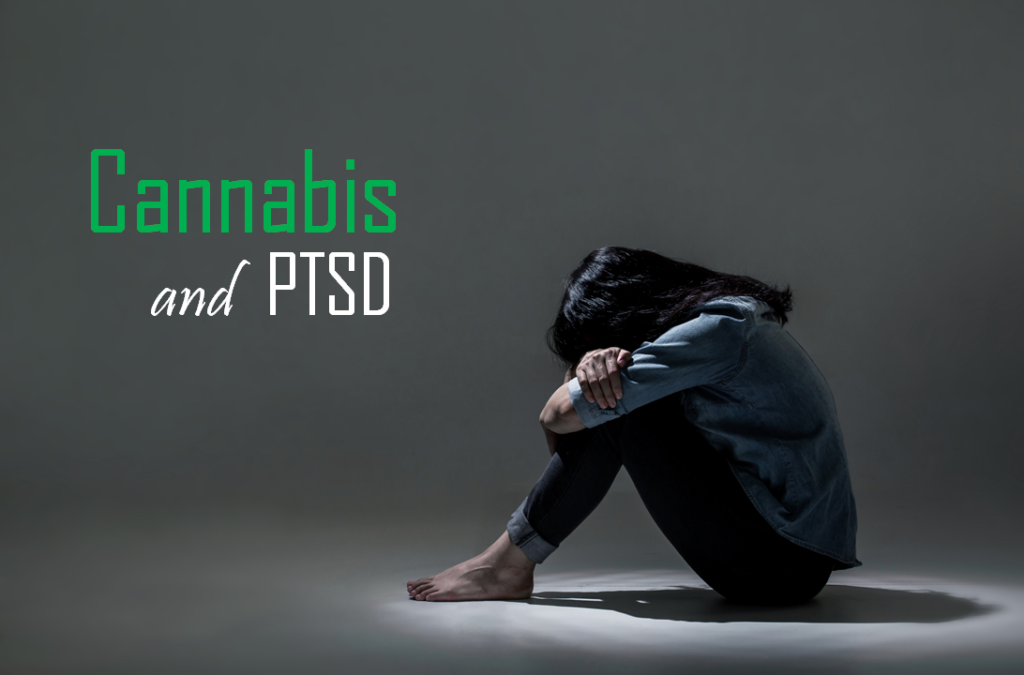There have been many studies showing the benefits of using cannabis to treat humans and animals suffering from Post-Traumatic Stress Disorder (PTSD) according to a report in the March 2019 edition of Journal of Psychiatry and Neuroscience.
However, while cannabis remains a Schedule 1 Drug, research opportunities are limited. Much of the evidence gathered to date that shows cannabis can help ease the symptoms of PTSD comes from anecdotal sources (patients’ reports of success) and studies that were limited in scope and depth.
Still, this evidence has been adequate to prompt numerous states to add PTSD to their lists of qualifying medical marijuana conditions.
What is PTSD?
PTSD is a mental health condition that is typically triggered by a traumatic event such as an assault, an accident, war or combat, a life-threatening situation, or a natural disaster. A person can develop PTSD whether they experience a traumatic event or witness one.
Common symptoms of PTSD include flashbacks, poor sleep, nightmares, severe anxiety, uncontrollable thoughts related to the event, sadness, fear, anger, detachment from other people, depression, and even suicide ideation. These symptoms last for an extended period of time after the traumatic event and can negatively affect a person’s ability to function on a daily basis.
According to data from the National Center for PTSD, approximately eight out of every 100 people (about 8% of the population) will have PTSD at some point in their lives, and approximately 8 million adults have PTSD during a given year.
Looking at the statistics from another perspective, it’s estimated that one in 11 people will be diagnosed with PTSD at some point during their lifetimes.
How Does Cannabis Help PTSD Patients?
The brain processes attributed to PTSD haven’t been fully identified yet, and there is no cure or single treatment. Patients are typically treated with a combination of therapy and medications in an effort to address neuronal dysfunction in the brain.
However, more recent research has brought attention to the role the body’s endocannabinoid system plays in PTSD since it’s the system that stabilizes bodily processes (including many brain functions, such as mood, fear, anxiety, and happiness). As part of this system, the human body naturally produces cannabinoids (referred to as endocannabinoids) that fit into cannabinoid receptors found throughout the body and the brain. Some brain imaging research has found that patients suffering from PTSD have a lot of cannabinoid receptors but don’t produce enough natural cannabinoids to fit into those receptors.
This is the problem that scientists believe cannabis can help solve.
There are more than 100 cannabinoids in the cannabis plant, including THC and CBD. It’s hypothesized that filling in the gaps of the body’s natural cannabinoids with cannabinoids from the cannabis plant can help stabilize some of the body’s processes, including the brain functions related to PTSD.
The good news for PTSD patients is there have already been research studies that support the cannabis hypothesis.
A study by NYU Langone Medical Center found that PTSD patients have significantly lower levels of the anandamide endocannabinoid which plays a role in stimulating the endocannabinoid system. In simplest terms, anandamides are like a natural antidepressant. They can also impair memory. Scientists found that CB1 cannabinoid receptors in the human body help to turn off traumatic memories, and a lack of endocannabinoids (like anandamide) produces the opposite effect by inducing some PTSD symptoms like fear and anxiety.
A separate study by the Multidiscipinary Association for Psychedelic Studies (MAPS) that was conducted back in 2014 reported similar findings regarding endocannabinoid deficiency among PTSD patients. Researcher Martin Lee compared anandamide to “our inner cannabis” saying it triggers the same receptors activated by THC and other components of the cannabis plant.
In other words, cannabis could offer a plant-based supplement to the body’s natural cannabinoids.
More Research about PTSD is Needed
The link between the endocannabinoid system and PTSD has appeared in multiple studies, but unfortunately, legal restrictions related to cannabis use have limited the research that scientists could conduct in the past. However, preclinical studies and the few clinical studies that have been completed thus far provide enough evidence to warrant more detailed studies into the use of cannabis to treat PTSD.

